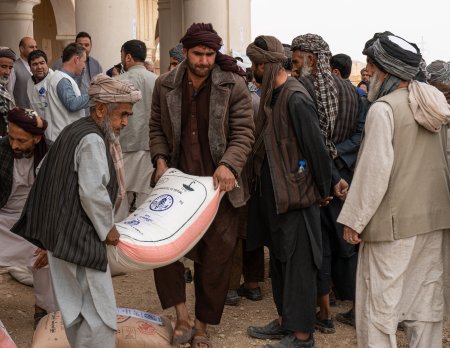
While the Government prepares its response to an impending drought, the UN’s Food and Agriculture Organization (FAO) and World Food Programme (WFP) warn that current resourcing is inadequate to protect lives and livelihoods at risk.
According to the IPC report, food insecurity in Afghanistan is attributed to the lingering impact of COVID-19, armed conflict, a jump in food prices, high unemployment rates and income loss, and arrival of the complex and recurrent weather event La Niña.
“This is the second drought in three years. Afghan families already struggle to survive. A bag of wheat is 30 percent more expensive than the four-year average. Jobs are few and far between,” Mary-Ellen McGroarty, WFP Representative in Afghanistan said. “The lean season is expected to arrive earlier and bite harder. We need to act now, bring food closer to people’s homes, and prevent irreversible malnutrition in mothers and children who will be impacted most. We cannot wait and see.”
Reinforced support from the Government of Afghanistan and the international community since the previous IPC analysis (November 2020) partially explains overall improvement compared to previous projections, factoring in “minimum assistance based on the plans available at that time”.
However, there exist significant funding gaps to meet even the most basic humanitarian needs in the coming months. While the onset of the summer harvest may bring employment and access to food, the report warns the harvest is expected to be “below average” and the “food security situation expected to deteriorate further during the 2021-2022 lean season”.
A further deterioration of the food security context will push more people to join one third of the population already food insecure. Monitoring prevailing food insecurity conditions will be critical, as will conducting a mid-year review of the IPC to adjust the responses and prevent the situation from further worsening.
Source: FAO, WFP







